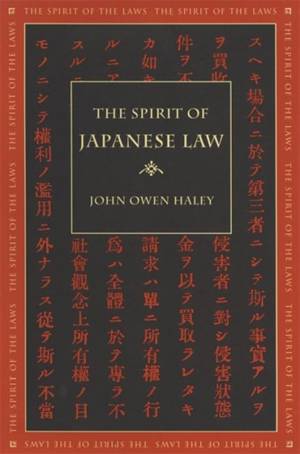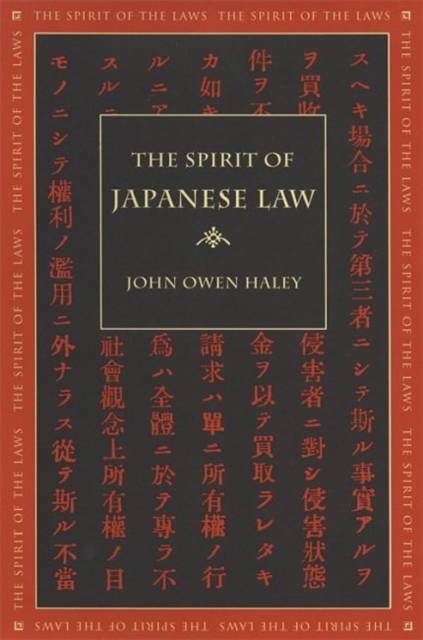
- Afhalen na 1 uur in een winkel met voorraad
- Gratis thuislevering in België vanaf € 30
- Ruim aanbod met 7 miljoen producten
- Afhalen na 1 uur in een winkel met voorraad
- Gratis thuislevering in België vanaf € 30
- Ruim aanbod met 7 miljoen producten
Zoeken
€ 56,45
+ 112 punten
Omschrijving
The Spirit of Japanese Law focuses on the century following the Meiji Constitution, Japan's initial reception of continental European law. As John Owen Haley traces the features of contemporary Japanese law and its principal actors, distinctive patterns emerge. Of these none is more ubiquitous than what he refers to as the law's "communitarian orientation."
While most westerners may view judges as Japanese law's least significant actors, Haley argues that they have the last word because their interpretations of constitution and codes define the authority and powers they and others hold. Based on a "sense of society," the judiciary confirms bonds of village, family, and firm, and "abuse of rights" and "good faith" similarly affirms community. The Spirit of Japanese Law concludes with constitutional cases that help explain the endurance of community in contemporary Japan.Specificaties
Betrokkenen
- Auteur(s):
- Uitgeverij:
Inhoud
- Aantal bladzijden:
- 280
- Taal:
- Engels
- Reeks:
Eigenschappen
- Productcode (EAN):
- 9780820328874
- Verschijningsdatum:
- 1/11/2006
- Uitvoering:
- Paperback
- Formaat:
- Trade paperback (VS)
- Afmetingen:
- 152 mm x 229 mm
- Gewicht:
- 408 g

Alleen bij Standaard Boekhandel
+ 112 punten op je klantenkaart van Standaard Boekhandel
Beoordelingen
We publiceren alleen reviews die voldoen aan de voorwaarden voor reviews. Bekijk onze voorwaarden voor reviews.











